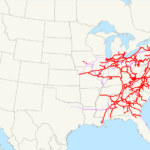Can ancient life forms survive in a cosmic environment?
- China’s space station is hosting an experiment to study Earth’s early life forms in a cosmic environment
- Archaea samples have been sent to the space station to test their ability to create methane
- The experiment aims to assess the survival of archaea in simulated Mars-like conditions
- If successful, it could provide insights into the possibility of life beyond Earth
China’s space station is conducting a groundbreaking experiment to investigate the viability of Earth’s early life forms in a simulated cosmic environment. Archaea samples, one of Earth’s oldest life forms, have been sent to the space station to test their ability to create methane. The experiment aims to assess the survival of archaea in simulated Mars-like conditions, including cosmic radiation and extreme temperatures. If successful, this research could provide valuable insights into the possibility of life beyond Earth and the potential common origin between Martian and Earthly life.
Public Companies:
Private Companies: undefined
Key People: Liu Zhu (Professor of the Department of Earth System Science at Tsinghua University)
Factuality Level: 8
Justification: The article provides factual information about China’s space station hosting a scientific experiment to assess the viability of Earth’s early life forms in a simulated cosmic environment. It mentions the launch of the Tianzhou 7 cargo spacecraft, its successful docking with the core module of the Tiangong space station, and the inclusion of an experiment carrying archaea. It also explains the purpose of the experiment and its potential implications for the search for life beyond Earth. The article does not contain any irrelevant or misleading information, sensationalism, redundancy, or opinion masquerading as fact. It does not include any bias or personal perspective presented as universally accepted truth. The information provided is consistent and logical, and there are no invalid arguments, logical errors, inconsistencies, fallacies, faulty reasoning, false assumptions, or incorrect conclusions.
Noise Level: 8
Justification: The article provides relevant information about China’s space station hosting a scientific experiment to assess the viability of Earth’s early life forms in a simulated cosmic environment. It discusses the cargo spacecraft, the experiment with archaea, and the potential implications for the search for extraterrestrial life. However, the article lacks scientific rigor and intellectual honesty as it does not provide any evidence or data to support its claims. It also does not provide actionable insights or solutions for the reader.
Financial Relevance: No
Financial Markets Impacted: No
Presence of Extreme Event: No
Nature of Extreme Event: No
Impact Rating of the Extreme Event: No
Justification: The article does not pertain to financial topics and does not describe any extreme events.
 www.space.com
www.space.com 





